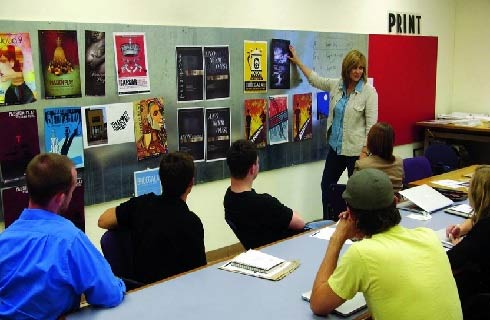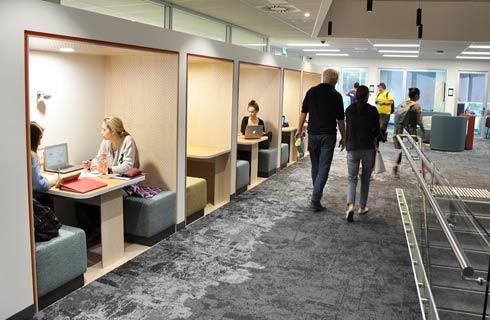Master of Engineering in Materials Science and Engineering

学历文凭
Masters Degree

专业院系
Department of Mechanical and Materials Engineering

开学时间

课程时长

课程学费

国际学生入学条件
Uploaded unofficial copies of all college transcripts
Official transcripts should only be submitted after an admissions decision has been made Official transcripts sent prior to being requested will not be attached to the online application
Letters of recommendation submitted through the online recommendation system
Recommenders can include former professors employers and other professional individuals pertinent to the field of study
Applicants can manage recommendations in the application status page
Test scores from qualifying exams such as Graduate Record Exam GRE
English Proficiency English proficiency is required of all applicants whose native language is not English Students can demonstrate proficiency in a number of ways at the graduate level Tests accepted are TOEFL Minimum 92 IELTS Minimum 6.5 Duolingo Minimum 110 and Pearson Minimum 54
UC College of Engineering and Applied Science graduate programs require all applicants to have a minimum of 3.0 GPA on a 4.0 scale in their highest degree earned to apply.
IDP—雅思考试联合主办方

雅思考试总分
6.5
- 雅思总分:6.5
- 托福网考总分:92
- 托福笔试总分:580
- 其他语言考试:NA
CRICOS代码:
申请截止日期: 请与IDP联系 以获取详细信息。
课程简介
相关申请
 预科
预科 奖学金
奖学金 实习机会
实习机会 在校学习
在校学习 跨境学习
跨境学习 校园授课-线上开始
校园授课-线上开始 在线/远程学习
在线/远程学习
开学时间&学费
学费信息仅供参考,请与IDP联系以获取详细信息
| 开学时间 | 时长 | 学费 | 地点 |
|---|
学校排名

世界排名251
数据源:
泰晤士高等教育世界大学排名
关于辛辛那堤大学

辛辛那提大学是美国一所一流的大学,开设有广泛的课程,其中包括为学生提供应用体验式学习机会。对于希望在快速发展的国际就业市场中获得竞争优势的学生来说,是理想的求学之地。该校的学生在攻读学历的同时每年还能总共赚得数千万美元的报酬。这种教学质量和实践体验的平衡使辛辛那提大学在全球一流高等院校中的地位更加巩固。该校是一所一级公立研究型大学,拥有4.5万多名在校生,被《美国新闻与世界报道》(U.S. News & World Report)评价为在''最佳国立大学中名列前茅''。充满活力的辛辛那提市为本科生和研究生获得极好的学习体验、度过健康愉快的求学生活提供了一个理想的环境。这座城市拥有众多商家和企业,为辛辛那提大学的学生提供了极好的就业机会以及各种便利设施和娱乐选择。该校的校园中也有各种服务和设施,还有一个十分热情友好的国际学生群体。这里拥有美丽的建筑和大量绿地,为学生提供了一个理想的环境,让他们能够愉快地学习,获得改变人生、踏上成功职业道路的机会。
本校相关课程

Graduate Certificate in Women, Gender and Sexuality Studies
学历文凭
Graduate Certificate
开学日期
课程费用总额


专业写作学士学位证书
学历文凭
Graduate Certificate
开学日期
课程费用总额


Graduate Certificate in Clinical and Translational Research
学历文凭
Graduate Certificate
开学日期
课程费用总额


Post-Baccalaureate Certificate in Assessment and Evaluation
学历文凭
Graduate Certificate
开学日期
课程费用总额


Juris Doctor
学历文凭
Juris Doctor
开学日期
课程费用总额


妇女,性别与性研究文学硕士
学历文凭
Masters Degree
开学日期
课程费用总额

其他相关课程

工程哲学博士-材料科学与工程(博士学位,可选)
 麦克马斯特大学
麦克马斯特大学学历文凭
Ph.D.
开学日期
课程费用总额


Master of Science in Materials Science
 安大略理工大学
安大略理工大学泰晤士高等教育世界大学排名:915
学历文凭
Masters Degree
开学日期
课程费用总额


Master of Science in Materials Science and Engineering
 克莱姆森大学
克莱姆森大学学历文凭
Masters Degree
开学日期
课程费用总额


材料科学哲学博士
 南加州大学
南加州大学泰晤士高等教育世界大学排名:74
学历文凭
Ph.D.
开学日期
课程费用总额


材料科学理学硕士
 南加州大学
南加州大学泰晤士高等教育世界大学排名:74
学历文凭
Masters Degree
开学日期
课程费用总额


Doctor of Philosophy in Materials Science and Engineering
 北德克萨斯大学
北德克萨斯大学学历文凭
Ph.D.
开学日期
课程费用总额










